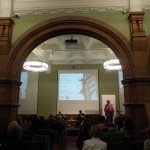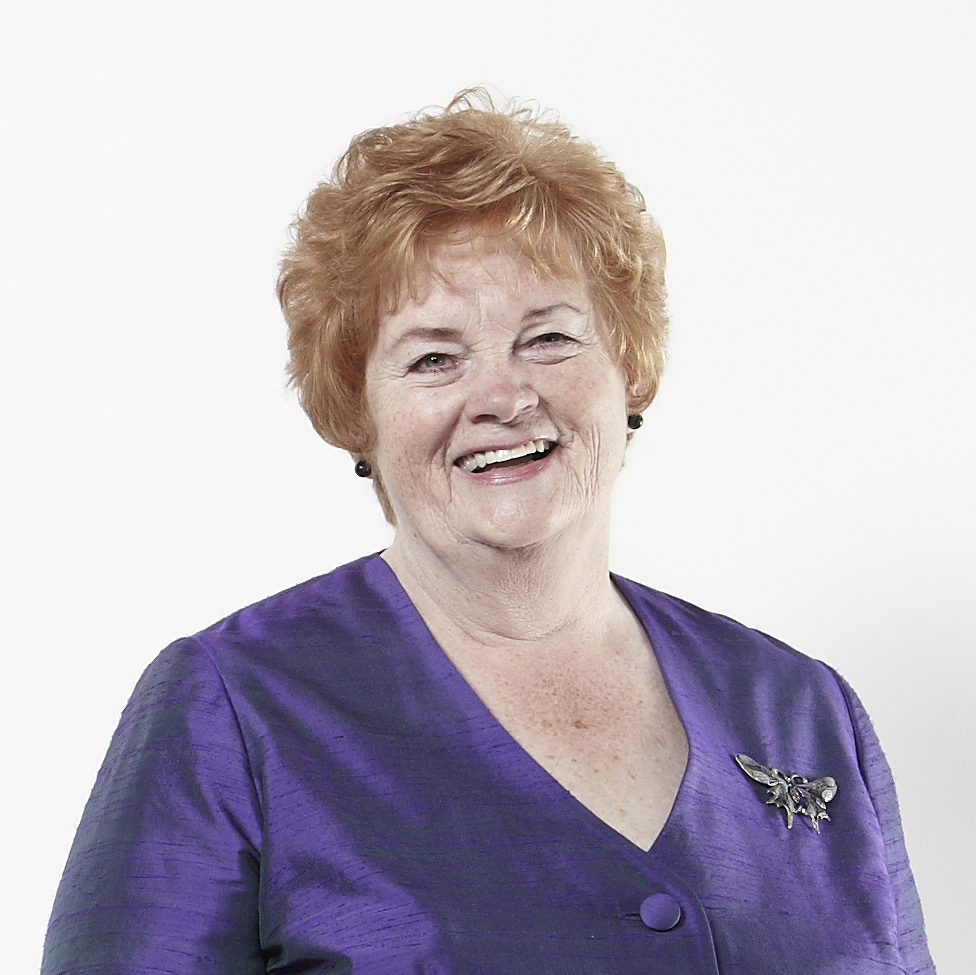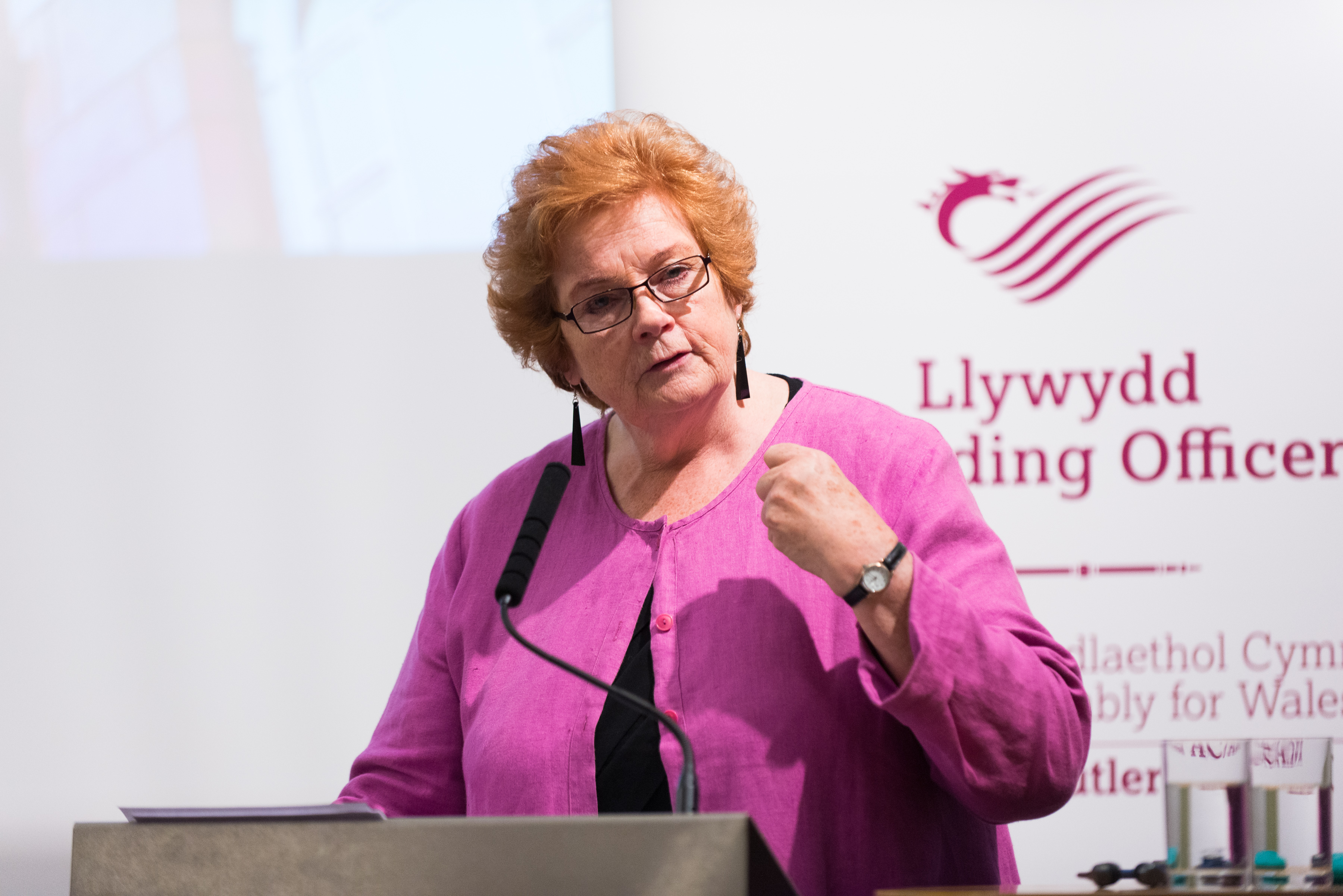Mentoring must play a central role in addressing the issue of gender inequality in public life
Today, the National Assembly for Wales’ Presiding Officer Dame Rosemary Butler AM, officially launches a Wales-wide development scheme which aims to encourage more women to apply for public appointments, and other roles in public life through mentoring, role-shadowing and networking opportunities. The Assembly’s Presiding Officer, who recently received recognition in the New Year’s honours list for her work in encouraging more women to get involved in public life, explains why this is such an important step forward.
More than half of Welsh population are women, so it is only common sense that women should play an equal role with men in making the key decisions that affect all our lives. This means a more equal number of women and men need to contribute to the process. Here is the stark reality of representation of women, both in Welsh public life and in the boardroom. According to the EHRC ‘Who Runs Wales’ 2012 report:
- Only 4% of Chief Executives in top 50 Welsh Companies is female;
- Only 5% of council leaders are women;
- Only 25% of councillors are women;
- Only 10% of the Chief Execs of Assembly Sponsored Public Bodies are women;
- Only 23% of local government chief execs are women;
- Only 18% of Welsh MPs are women
 These are undeniably sobering figures, and paint a very frustrating picture. I suspect they are reflected across the rest of the UK, but they are nonetheless a sad indictment. I do not say that women are better than men, but they are different, and it seems absurd that we are missing out on the different policy perspective that women can offer.
These are undeniably sobering figures, and paint a very frustrating picture. I suspect they are reflected across the rest of the UK, but they are nonetheless a sad indictment. I do not say that women are better than men, but they are different, and it seems absurd that we are missing out on the different policy perspective that women can offer.
The National Assembly for Wales does have a relatively good record when it comes to the number of female members – 42% of current AMs are women, which would rank the Assembly ninth in the world compared to Westminster’s which ranks at 58. Evidence shows that gender parity in the Assembly has had an impact on the type of policy issues that have been debated and on the style of debate. Research by Cardiff University suggests that female Assembly Members are more likely to involve women’s, children’s, and community organisations in the work of the Assembly, whereas male Members are more likely to focus on trade unions and on energy and environmental groups.
As well as in the UK’s parliamentary bodies, we need this breadth of policy perspective reflected in the boards of other public bodies such as housing associations, school governors and health authorities. We also need it on Magistrates’ benches, in the local council chamber and in the boardroom. That’s why the National Assembly is, in partnership with equal opportunities charity Chwarae Teg and Cardiff Business School, launching the Women in Public Life Development scheme.
The development scheme is the next phase of my Women in Public Life #POWiPL project and one which I believe will be of enormous use in combating this issue. A mentor will often provide inspiration for these women to take the next step – and the mentors themselves don’t have to be women. I want men and women, who are already involved in public life, to become mentors and help deliver this step change.
I launched the #POWiPL campaign on International Women’s Day in 2012. I have travelled to all corners of Wales seeking the views of women about what can be done to break down the barriers that they face in becoming school governors, magistrates, local councillors, and holding other public offices.
This work has been accompanied by a series of lectures, in the iconic Pierhead, with leading female figures such as human rights campaigner Shami Chakrabarti, leading scientist Baroness Susan Greenfield, and former New Zealand Prime Minister and UN ambassador Helen Clark – the aim is to provide strong role models and to prove that that women can, and must, match men in the public sphere.
The campaign culminated in a National conference at the Assembly in November 2012, attended by women from all over Wales, and addressed by businesswoman and equalities campaigner, Zarin Hainsworth. At that conference I, as Presiding Officer of Wales’s law-making body, was mandated to take action to address these barriers which included setting up this mentoring scheme and a #POWiPL web portal, which can also be followed on Twitter @WomenofWales.
But our work doesn’t stop here. I am currently working with all the political parties in the Assembly to set up a cross-party Caucus to look at best practice, from all over the world, in terms of encouraging more women to get involved in public life. I believe that this is a democratic deficit that we must all work together to overturn.
—
Note: Anyone wishing to get involved in the scheme, as a mentor or mentee, should contact Emma Tamplin at Chwarae Teg, at emma.tamplin@chwaraeteg.com. A press release about the scheme can be found here. This post represents the views of the author and not those of Democratic Audit or the LSE. Please read our comments policy before posting. the shortened URL for this post is: https://buff.ly/MpOQ5A
—
 Dame Rosemary Butler AM was elected as Newport West’s first Assembly Member in May 1999 and has been re-elected in each subsequent Assembly election. She was appointed to the first National Assembly cabinet as Minister for pre-16 Education and Children, and chaired the Culture, Welsh Language and Sport Committee and was the Assembly’s representative on the European Union’s Committee of the Regions. In May 2011, Dame Rosemary was elected to the position of Presiding Officer by a unanimous vote of Assembly Members.
Dame Rosemary Butler AM was elected as Newport West’s first Assembly Member in May 1999 and has been re-elected in each subsequent Assembly election. She was appointed to the first National Assembly cabinet as Minister for pre-16 Education and Children, and chaired the Culture, Welsh Language and Sport Committee and was the Assembly’s representative on the European Union’s Committee of the Regions. In May 2011, Dame Rosemary was elected to the position of Presiding Officer by a unanimous vote of Assembly Members.






 Democratic Audit's core funding is provided by the Joseph Rowntree Charitable Trust. Additional funding is provided by the London School of Economics.
Democratic Audit's core funding is provided by the Joseph Rowntree Charitable Trust. Additional funding is provided by the London School of Economics.
Mentoring must play a keyrole in addressing the issue of gender inequality in public life says Rosemary Butler AM https://t.co/BNB3fAk6pR
Mentoring must play a central role in addressing the issue of gender inequality in public life https://t.co/dQscNMda1X @democraticaudit
Mentoring must play a central role in addressing the issue of gender inequality in public life https://t.co/axPh2IDHxw